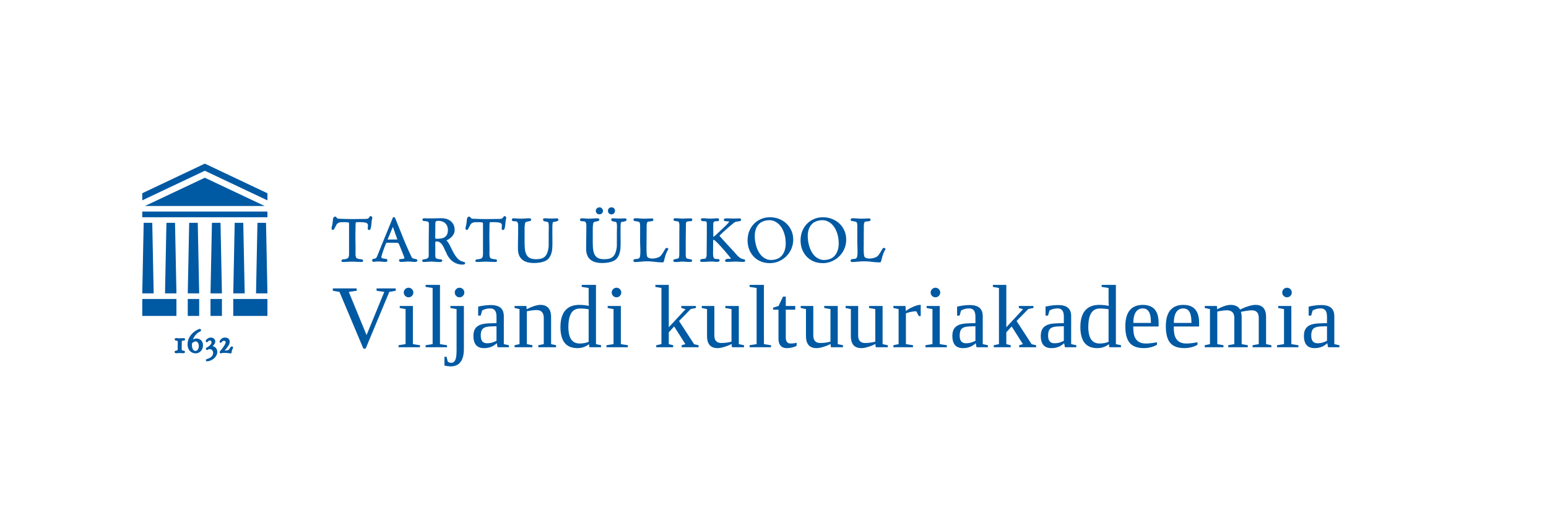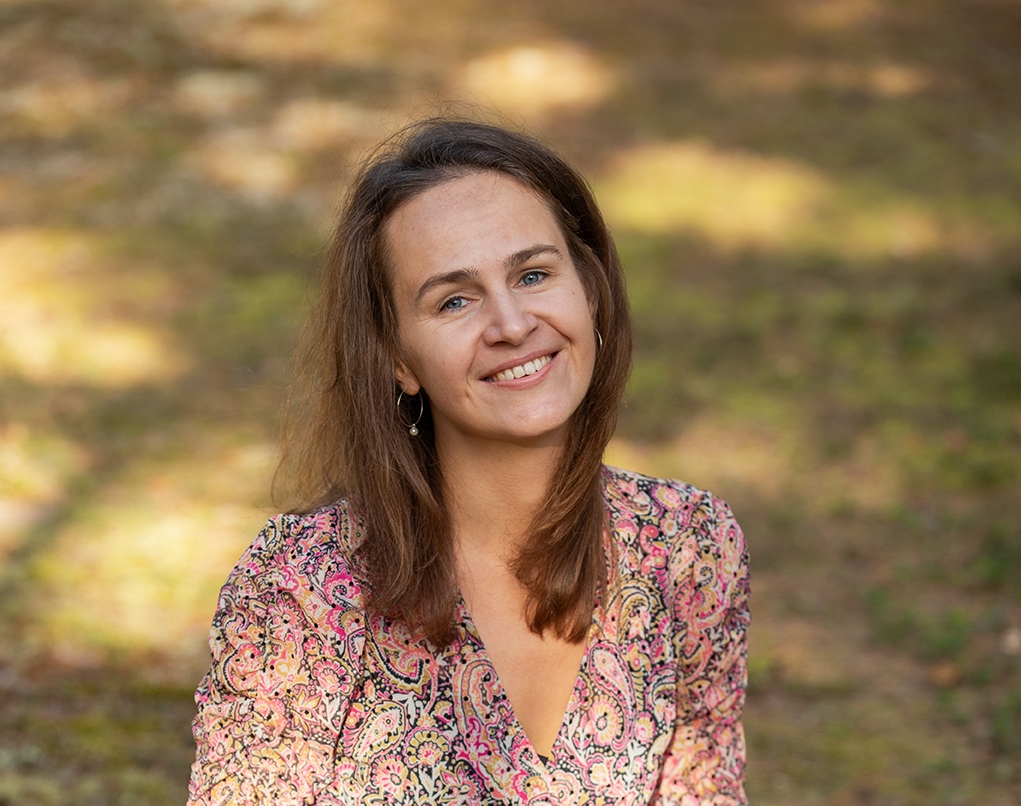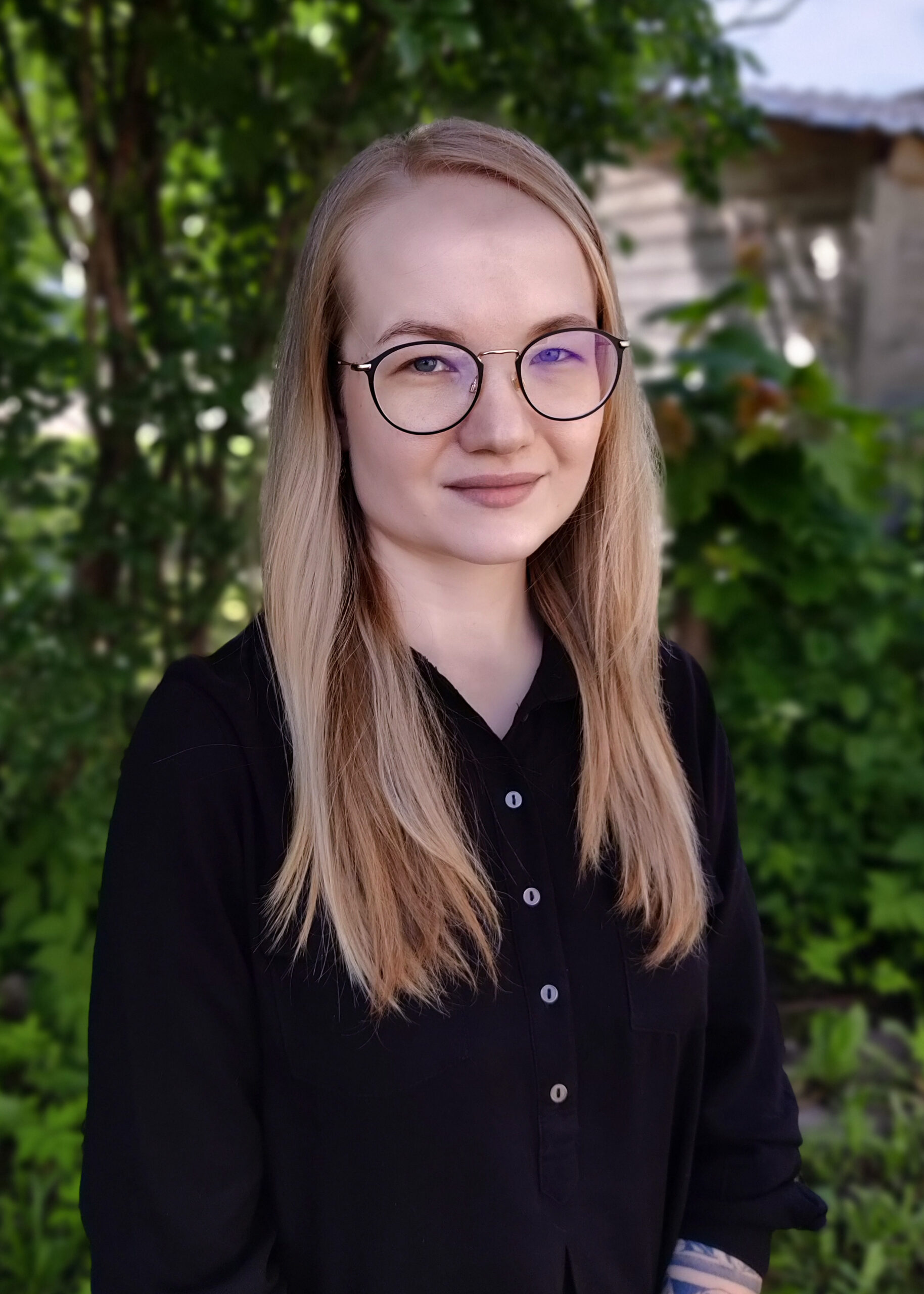“EESTI MUUSIKAKOOLIDE VIIULIÕPETAJATE PROFESSIONAALNE ENESEMÄÄRATLUS” (juhendaja Äli Leijen, PhD).
LÜHIÜLEVAADE: Õpetaja ametialast efektiivsust ja professionaalset arengut (sh valmisolekut muutustega kohaneda) mõjutab see, kuidas õpetaja ennast tajub ja erialaselt määratleb. Sellest tulenevalt seati magistritöö peamiseks eesmärgiks välja selgitada Eesti viiuliõpetaja professionaalne identiteet ehk kuidas viiuliõpetajad ennast ise õpetajatena määratlevad. Uurimuse metoodika põhineb Hollandi uurijate Beijaardi jt poolt väljatöötatud õpetajaameti aspektide (erialaspetsialist, ainedidaktik ja pedagoog) ja nende võimalike mõjutegurite uurimise küsimustikul.
Uurimisandmed koguti 58-lt viiuliõpetajalt (43 % üldkogumist). Uurimistulemused näitasid, et enamik õpetajaid määratlesid ennast kõigi kolme aspekti kaudu. Suurima grupi moodustas erialaspetsialisti suundumusega rühm (n=18), järgnesid pedagoogi suundumusega rühm (n=15) ja kõiki kolme aspekti väärtustav tasakaalustatud rühm (n=14). Mõnevõrra üllatuslikult selgus uuringust, et viiuliõpetajate subjektiivne hinnang ei lähe vastavusse käitumist uurivate kontrollküsimuste tulemustega. Selgus, et olenemata subjektiivsest tajust on kõigil viiuliõpetajatel pedagoogilises töös tugev pedagoogi suundumus. Nimetatud tulemus võib pakkuda mõtteainet pilliõpetajate väärtuste teemal, kuid on igatahes rõõmustav, sest kaasaegse pedagoogika põhimõtete järgi on aine õpetamise kõrval õppeprotsessis kõige olulisem just õpilane ja tema areng.
Huvitav seos ilmnes ka pedagoogilises töös kasutatavate võtete ja õpetajate ametijärkude (noorempedagoog, pedagoog, vanempedagoog, pedagoog-metoodik) vahel. Võrreldes kahte rühma, millest esimesse kuulusid noorempedagoogid ja pedagoogid ning teise vanempedagoogid ja pedagoog-metoodikud, ilmnes, et kõrgema ametijärguga õpetajate rühm kasutab enda hinnangul mitmekesisemaid pedagoogilisi tegevusi võrreldes noorempedagoogide ja pedagoogide grupiga. Tulemus viitab sellele, et karjääri jooksul ei kasva viiuliõpetajate puhul kitsalt vaid pedagoogi aspekti osatähtsus, nagu oletati Beijaardi ja kolleegide uurimistulemuste põhjal, vaid mitmekesistub kogu pedagoogiline kompetentsus tervikuna.
Äli Leijen, PhD
Dotsent
TÜ Viljandi Kultuuriakadeemia
LÄBITUD ÕPPEKAVA: muusikaõpetaja MA õppekava.
SUMMARY: The aim of the thesis was to study the Estonian violin teachers’ perceptions of professional identity. The study addressed the following questions: How do the Estonian violin teachers perceive their professional identity now and at the beginning of their careers? Do the more objective control-items confirmed the teachers’ subjective perception of their professional identity? Do the influencing factors relate to the violin teachers´ perceptions of their professional identity? How the objective control items relate to the pedagogical ranks of teachers?
In the theoretical part of the thesis it firstly deals with what the concept of identity and professional identity means, a violin teachers’ profession is evaluated according to the features of the traditional profession. Following subchapter describes the qualification and competency requirements, pedagogical ranks of teachers, and the overview of statistics about violin teachers in Estonia is given. The last subchapter in the theoretical part of the thesis reveals some ways how teachers’ professional identity has been studied.
In this study the teachers’ professional identity will be described in terms of the teacher as a subject matter expert, the teacher as a pedagogical expert, and the teacher as a didactical expert. The method of the study is based on questionnaire of Dutch researchers D. Beijaard, N. Verloop and J. D. Vermunt. Each respondent (n=58) was asked to represent his/her professional identity by awarding a total of 100 points to the three aspects of this identity (subject matter, pedagogical and didactical expertise). The teachers were also asked to clarify why they awarded the abovementioned aspects of their professional identity the way they did. The same questions were asked about their period as a beginning teacher. In order to control their subjective perceptions of their professional identity, 18 statements were presented (6 per each aspect of identity) and teachers were asked to express to what extent these statements were applicable to them on an four-point scale.
Most of the teachers in this study saw themselves as a combination of subject matter experts, didactical experts and pedagogical experts.
The hypothesis guiding this study was that most of violin teachers at the beginning of their careers perceive themselves as subject matter specialists and many teachers shifted specifically from subject matter expertise to didactical and pedagogical expertise during their careers. The 37 hypothesis found confirmation: at the beginning of their careers many violin teachers see themselves above all as subject matter experts. This changes during the teachers´ careers. It appears that throughout their careers the teachers´ perceptions of their professional identity particularly shifted to the balanced group and pedagogical group.
The research shows that the self perception of violin teachers in Estonian music schools in regards to certain aspects do not correlate with control question results. It comes out that all teachers are strong in pedagogical aspect. The author of the thesis brings out some possible reasons why violin teacher’s everyday actions to not correlate with the self perception of the teacher’s specific area. If a violin teacher does not have good violin skills, it is not possible to teach students the violin. One can assume that because of this violin teachers stressed subjectively the importance of the subject matter expert. However, the result indicating that violin teachers apply rather readily the behaviour associated with the category of pedagogy, is in line with modern pedagogical principals where the most important part of the learning process in the teaching of the subject is the student and their development



